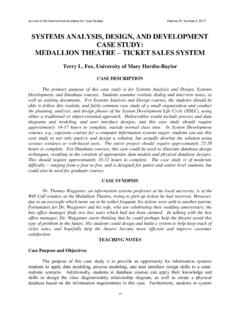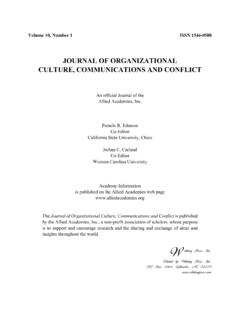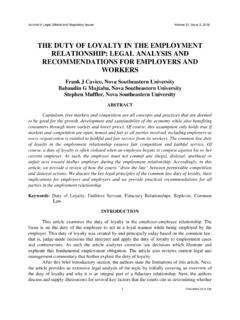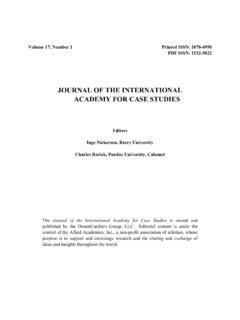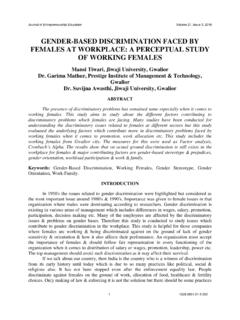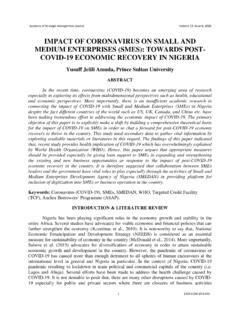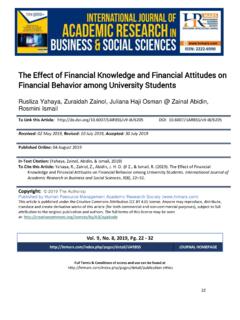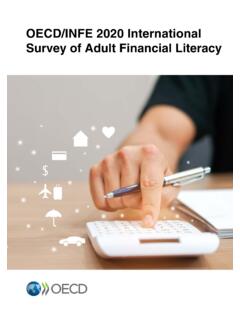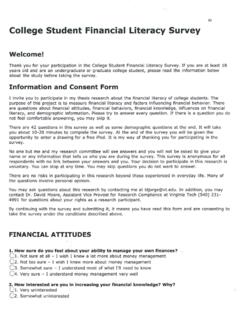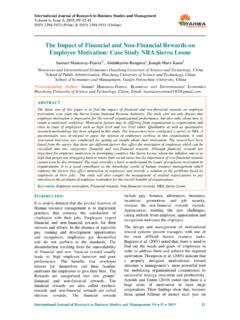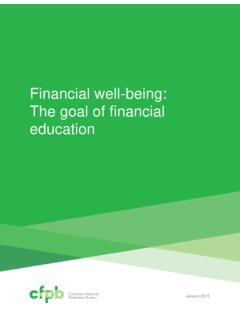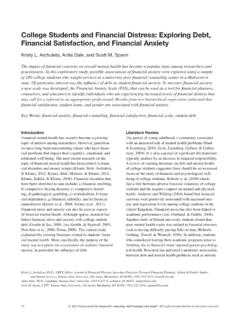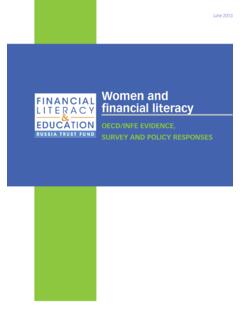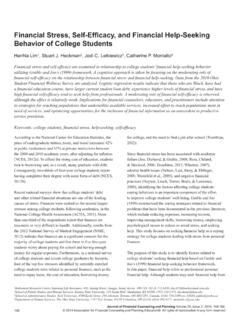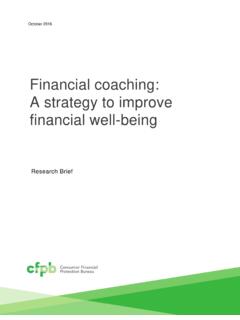Transcription of FINANCIAL LITERACY AMONG UNDERGRADUATE …
1 Academy of Accounting and FINANCIAL Studies Journal Volume 22, Issue 6, 2018 1 1528-2635-22-6-299 FINANCIAL LITERACY AMONG UNDERGRADUATE STUDENTS: EMPIRICAL EVIDENCE FROM GHANA Emmanuel Oseifuah, University of Venda Agyapong Gyekye, University of Venda Patricia Formadi, University for Development Studies, Ghana ABSTRACT This study investigates the level of FINANCIAL LITERACY AMONG UNDERGRADUATE university students in the northern region of Ghana.
2 Specifically, the study examined whether gender, age, programme of study, study years, parent s income level and student s FINANCIAL status, are related to FINANCIAL LITERACY . An adapted version of the OECD/INFE (2015) toolkit for measuring FINANCIAL was used to collect data on the level of FINANCIAL LITERACY for a stratified random sample of 342 UNDERGRADUATE students at the Nyankpala and Tamale campuses of the University for Development Studies (UDS) in Ghana. Logistic regression and Chi-Square statistical procedures were used to analyse the data using STATA version 14 of statistical software.
3 As expected students experience in handling money (through managing incomes from working) positively influences their FINANCIAL LITERACY as such experience in handling monies would require them to be knowledgeable about FINANCIAL management matters such as budgeting, investment, interest rate, AMONG others. Saving out of pocket incomes of the students remains a very significant consideration in the management of their personal finances. Being financially literate appears not to have a (statistically) significant influence on savings propensities of the students.
4 On the other hand our finding that as student s monthly pocket money increases their propensity to save will also be high is in accordance with the theory of savings behaviour which posits that saving is a positive function of disposable income. Keywords: FINANCIAL LITERACY , Ghana, Logistic Regression, UNDERGRADUATE Students. INTRODUCTION FINANCIAL LITERACY is an essential life skill that has important impact on individual, family well-being and on the broader economy. Over the past two decades, both developed and developing countries have become increasingly concerned about the level of FINANCIAL LITERACY of their citizens, particularly AMONG young people.
5 Moreover, the literature suggest that, globally, FINANCIAL illiteracy is a major reason for falling saving rates (Hilgert et al., 2003), mounting consumer debt (Stango & Zinman, 2007), inadequate planning for retirement (Lusardi & Mitchell, 2011), basis for divorce, poor mental health and a variety of other negative and unhappy experiences (Kinnunen & Pulkkinen, 1998), the cause of emotional stress, depression and lower self-esteem (Wolcott & Hughes, 1999).
6 This has led to the recognition that better FINANCIAL LITERACY skills could contribute to improved FINANCIAL decision making, and that these decisions could, in turn, have positive effects not only on households but also on economic and FINANCIAL stability of a country more generally (OECD/INFE, 2017). Indeed, the acquisition and development of FINANCIAL LITERACY skills AMONG young people is increasingly perceived by policy makers as essential for several reasons. First, the current and future FINANCIAL choices faced by today s youth are likely to be more challenging than those of Academy of Accounting and FINANCIAL Studies Journal Volume 22, Issue 6, 2018 2 1528-2635-22-6-299 past generations, given the greater complexity in the FINANCIAL products, services and systems now available.
7 Second, young people will probably bear more FINANCIAL risks in adulthood due to increased life expectancy, a decrease in welfare and occupational benefits, and uncertain economic and job prospects. Third, providing young people with proper FINANCIAL education may also help bridge FINANCIAL LITERACY disparities due to differences in their socio-economic status. Recent studies exhibited mixed results on the level of FINANCIAL LITERACY AMONG young people, particularly UNDERGRADUATE students in both developed and developing countries.
8 This suggests that additional factors merit examination for their impact on FINANCIAL LITERACY AMONG the youth. More importantly, the evidence show that the level of FINANCIAL LITERACY AMONG female UNDERGRADUATE students is low compared to their male counterparts (Agnew & Harrison, 2015; Lantara & Kartini, 2015; Philippas & Tzora, 2017). This study, therefore seeks to further explore an understudied part of the globe and reinforce existing knowledge and models by analysing the level of FINANCIAL LITERACY AMONG UNDERGRADUATE university students in northern Ghana.
9 LITERATURE REVIEW The issue of FINANCIAL LITERACY and FINANCIAL well-being AMONG college students has received increasing research attention. In fact, FINANCIAL LITERACY has been shown to affect a wide range of FINANCIAL behaviour AMONG the youth, especially college or UNDERGRADUATE students. In general, the evidence shows that young people have low levels of FINANCIAL LITERACY and ability to manage their own finances. For instance, Lusardi et al. (2009) reported that less than a third of American teenagers (age 12-17 yrs) possess basic knowledge of interest rates, inflation, and risk diversification.
10 The study noted further that women, African-Americans and Hispanics, and those with lower educational attainment are associated with lower levels of FINANCIAL LITERACY . Other studies even suggested that youth FINANCIAL LITERACY has been declining since the late 1990s (Xue & Zia, 2012). Meanwhile, Mandell (2004), the National Council on Economic Education (NCEE, 2005) and the JumpStart Coalition (2005) investigated FINANCIAL LITERACY levels AMONG US high school students and concluded that the students demonstrated a lack of both personal FINANCIAL skills and knowledge .
